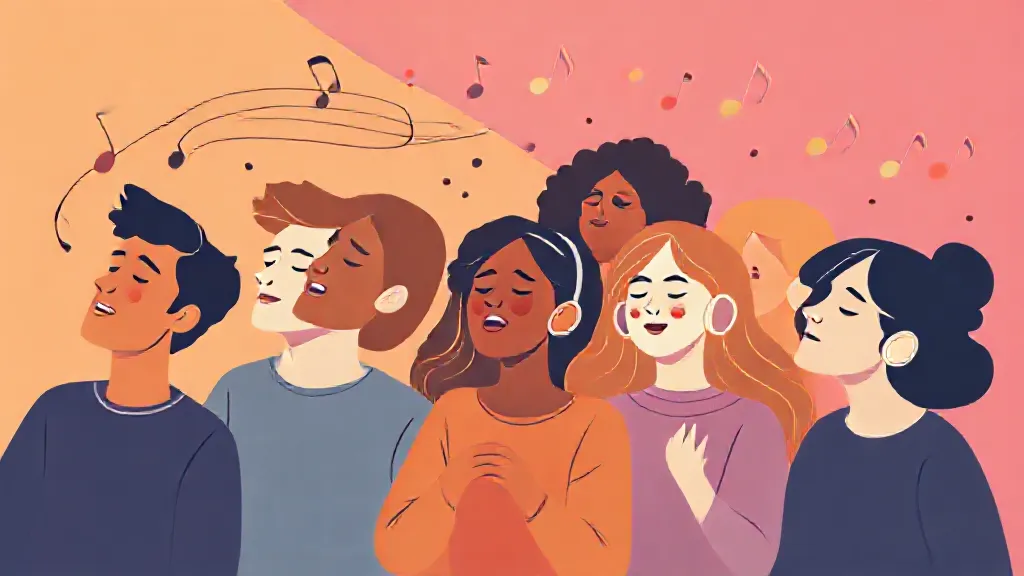Music has been an integral part of human culture for centuries, transcending geographical, linguistic, and social boundaries. Its ability to evoke emotions is unparalleled, making it a powerful tool for expression and connection. The emotional impact of music can be observed in various contexts, including cinema, personal experiences, and even therapeutic settings.
This article delves into where music impacts emotions the most, exploring the science behind this phenomenon and its implications in our daily lives.
The Science of Sound and Emotion
Research in psychology and neuroscience has shown that music can trigger a wide range of emotional responses. When we listen to music, our brains release neurotransmitters such as dopamine, which is associated with pleasure and reward.
This biochemical reaction explains why certain melodies can uplift our spirits or evoke feelings of nostalgia. The tempo, key, and dynamics of a piece can influence our emotional state, with faster tempos often eliciting excitement and slower tempos inducing calmness or sadness. Studies have demonstrated that even the mere anticipation of a musical climax can generate a heightened emotional response, illustrating the intricate relationship between music and emotion.
Cinematic Music: Setting the Mood
One of the most prominent areas where music impacts emotions is in film. Filmmakers meticulously select soundtracks to enhance the narrative and evoke specific feelings in the audience. For instance, the haunting score of a thriller can heighten suspense, while a romantic ballad can deepen emotional connections between characters.
Iconic examples include John Williams' score for "Jaws," which uses a simple two-note motif to instill fear and anticipation, and Hans Zimmer's work in "Inception," where the music builds tension and emotional depth throughout the film. The strategic use of music in cinema not only influences viewers' emotional experiences but also reinforces the storytelling, making it a crucial element of the filmmaking process.
The Personal Soundtrack of Our Lives
Beyond cinema, music plays a vital role in shaping our personal experiences and emotions.
Many individuals associate specific songs with significant life events, such as weddings, graduations, or even heartbreaks. This phenomenon, often referred to as a "personal soundtrack," highlights how music can serve as a time capsule, evoking memories and emotions tied to particular moments in our lives. For example, a song played during a first dance can bring back feelings of love and joy years later, while a breakup anthem can resonate with feelings of sorrow and reflection.
This personal connection to music underscores its power to influence our emotional landscape.
Therapeutic Uses of Music
In recent years, music therapy has gained recognition as a legitimate form of treatment for various emotional and psychological issues. Music therapists use carefully selected music to help individuals process emotions, reduce anxiety, and improve overall well-being.
For instance, studies have shown that listening to soothing music can lower cortisol levels, the hormone associated with stress, while upbeat music can enhance mood and motivation. Music therapy is particularly beneficial for individuals dealing with trauma, depression, or chronic pain, as it provides a non-verbal outlet for expressing complex emotions. The therapeutic impact of music demonstrates its potential to heal and transform lives.
Cultural Contexts and Emotional Responses
The emotional impact of music also varies across different cultures. Traditional music often reflects the values, beliefs, and experiences of a community, influencing how individuals experience emotions. For example, the use of drumming in African cultures is not only a form of entertainment but also a means of communal bonding and emotional expression.
Similarly, the melancholic melodies of Irish folk music often evoke feelings of longing and nostalgia. Understanding these cultural nuances is essential for appreciating the diverse ways in which music impacts emotions globally.
The Role of Lyrics in Emotional Connection
While the melody and rhythm of music play a significant role in emotional impact, lyrics also contribute to the emotional experience.
Songwriters often draw from personal experiences, crafting lyrics that resonate with listeners on a profound level. For instance, Adele's ballads often explore themes of heartbreak and longing, connecting deeply with audiences who have experienced similar emotions. The combination of relatable lyrics and emotive melodies creates a powerful synergy that can evoke tears, laughter, or a sense of empowerment.
This interplay between lyrics and music further enhances the emotional depth of a song.
The Future of Music and Emotion
As technology continues to evolve, so does the way we experience music and its emotional impact. Streaming platforms and social media have democratized music access, allowing individuals to discover and share songs that resonate with them.
Additionally, advances in artificial intelligence are paving the way for personalized music experiences, where algorithms curate playlists based on individual emotional states. This shift raises intriguing questions about the future of music and its role in emotional well-being. Will we see a rise in music tailored specifically for emotional regulation, or will the organic connection to music remain central to our experiences?
Conclusion: The Enduring Power of Music
In conclusion, music's impact on emotions is profound and multifaceted, encompassing scientific, cultural, personal, and therapeutic dimensions.
From the cinematic scores that shape our viewing experiences to the personal soundtracks that accompany our lives, music remains a vital force in emotional expression and connection. As we continue to explore the intricate relationship between music and emotion, it becomes clear that this art form will always hold a special place in the human experience, offering solace, joy, and a deeper understanding of our emotions.
